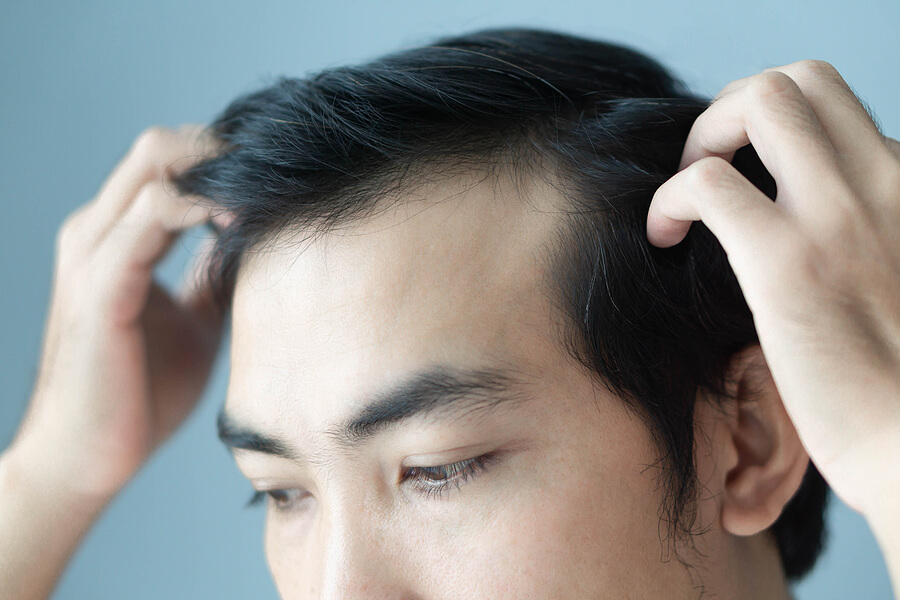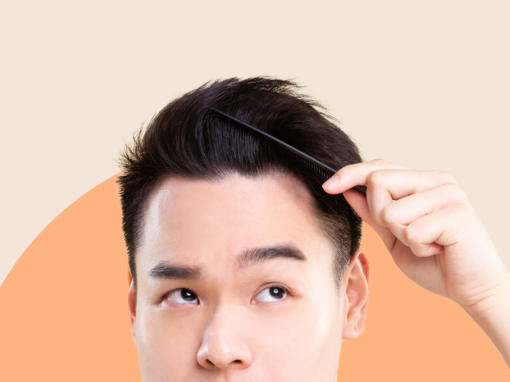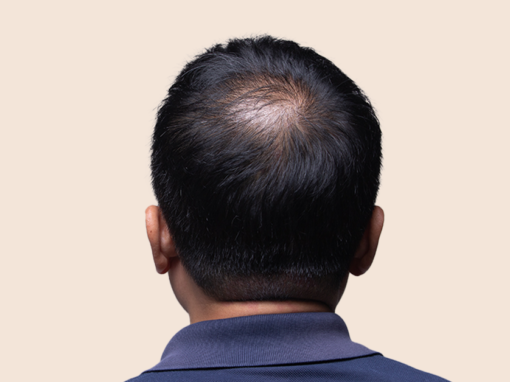It is normal for individuals to have a hard time coping with hair loss. But in the face of adversity, remember to avoid dwelling on a predicament for too long. Instead, focus on how to slow your receding hairline by tackling it head-on.
For the majority of men suffering from hair loss, a receding hairline usually goes unnoticed during the early stages. This denial will soon become a growing “widow’s peak”, or extra hairs accumulating at the bottom of the shower basin. As such, the first step to slowing down your receding hairline is observation and acceptance.
Although an “all in one” magic pill is not in the market, you can still slow your receding hairline. In fact, fighting MPB may not necessarily be a losing battle. The good news is, this includes people with a genetic predisposition of hair loss. All you need is a few positive adjustments to your daily routine, which you will find as you read further. Let’s go!
1. Go Easy on Your Scalp
Are you prone to frequently rubbing your head? If you are, please stop immediately! Excessive brushing and constant scratching of your scalp can damage hair follicles, which contributes to a receding hairline. The cause of an itchy scalp, surprisingly, may actually be the side effect of using a particular type of shampoo. Opt for shampoos that contain pyrithione zinc. Pyrithione zinc is an effective active ingredient for dandruff and other skin-related conditions.
Additionally, hairstyles that require you to pull your hair back puts undue stress on your hair follicles. Some of these hairstyles are ponytails, man buns and cornrows. Over time, constant tugging on your hair can cause your hairline to recede. If you are sporting one of these hairdos and start to notice your forehead getting bigger, it’s time to reconsider!
2. Do The Things You Love
Being constantly under stress or in a state of worry can be a contributing factor to a receding hairline. Given that stress contributes to hair loss, experiencing frequent anxiety and stress will lead to a faster receding hairline.
When you feel stressed or overwhelmed, take some time out of your day to do something that makes you happy. Things like walks, work-outs or a good read can help you unwind. Apart from enabling you to feel happier and healthier, spending a little time on yourself can help you to mitigate your hair loss. Talk about a win-win!
3. Eat Healthier Meals For Healthier Hair
Not providing your body with an adequate supply of vitamins and minerals can have consequences on your hair health. For example, consuming fast food, frozen dinners and processed foods, may cause you to shed more hair than usual. In fact, switching to a healthy diet is relatively easy. Surprise! All you need to do is to start incorporating foods that contain essential vitamins and minerals, such as fruits and vegetables.
You may also opt to consume a multivitamin supplement on a daily basis. Having a diet that is high in nutrients and taking a multivitamin supplement can help preserve the strength and health of your hair. It is important to not consume too many health supplements at a single time, however. In fact, studies have linked excessive consumption of vitamins A and E to increased hair loss. This is why you should always keep your vitamin supplementation dosage under 10,000 UI a day.
4. Include Minoxidil As Part of Your Daily Hair Care Routine
Minoxidil is a topical solution that you apply directly to your scalp. Minoxidil is a scientific solution that has helped men suffering from MPB to prevent further hair loss. In fact, hair products containing minoxidil have been shown to help promote new hair growth. Hair treatment products that contain minoxidil, however, have to be used consistently as part of a regimented hair loss treatment programme in order to be effective.
There is no such thing as a “miracle cure” when it comes to treating hair loss effectively. Pharmaceutical breakthroughs such as minoxidil and finasteride can help to mitigate your hair loss only if you use these products on a regular basis. Therefore, it is important to stay disciplined when it comes to using hair treatment products with minoxidil (or finasteride, for that matter). You may not reap the positive benefits instantly but over a long-term period of time (such as a few months or even a year), you will definitely see results.


